- Date & Time: Friday, March 8, 2024; 1:00 PM
Speaker: Stefanos Nikolaidis, University of Southern California
MERL Host: Siddarth Jain
Research Areas: Machine Learning, Robotics, Human-Computer Interaction
Abstract 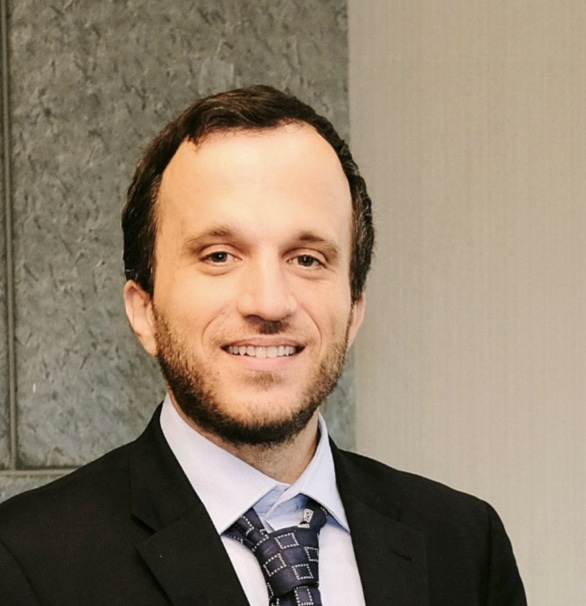 While robots have been successfully deployed in factory floors and warehouses, there has been limited progress in having them perform physical tasks with people at home and in the workplace. I aim to bridge the gap between their current performance in human environments and what robots are capable of doing, by making human-robot interactions efficient and robust.
While robots have been successfully deployed in factory floors and warehouses, there has been limited progress in having them perform physical tasks with people at home and in the workplace. I aim to bridge the gap between their current performance in human environments and what robots are capable of doing, by making human-robot interactions efficient and robust.
In the first part of my talk, I discuss enhancing the efficiency of human-robot interactions by enabling robot manipulators to infer the preference of a human teammate and proactively assist them in a collaborative task. I show how we can leverage similarities between different users and tasks to learn compact representations of user preferences and use these representations as priors for efficient inference.
In the second part, I talk about enhancing the robustness of human-robot interactions by algorithmically generating diverse and realistic scenarios in simulation that reveal system failures. I propose formulating the problem of algorithmic scenario generation as a quality diversity problem and show how standard quality diversity algorithms can discover surprising and unexpected failure cases. I then discuss the development of a new class of quality diversity algorithms that significantly improve the search of the scenario space and the integration of these algorithms with generative models, which enables the generation of complex and realistic scenarios.
Finally, I conclude the talk with applications in mining operations, collaborative manufacturing and assistive care.
-
- Date & Time: Tuesday, February 13, 2024; 1:00 PM
Speaker: Melanie Mitchell, Santa Fe Institute
MERL Host: Suhas Lohit
Research Areas: Artificial Intelligence, Computer Vision, Machine Learning, Human-Computer Interaction
Abstract 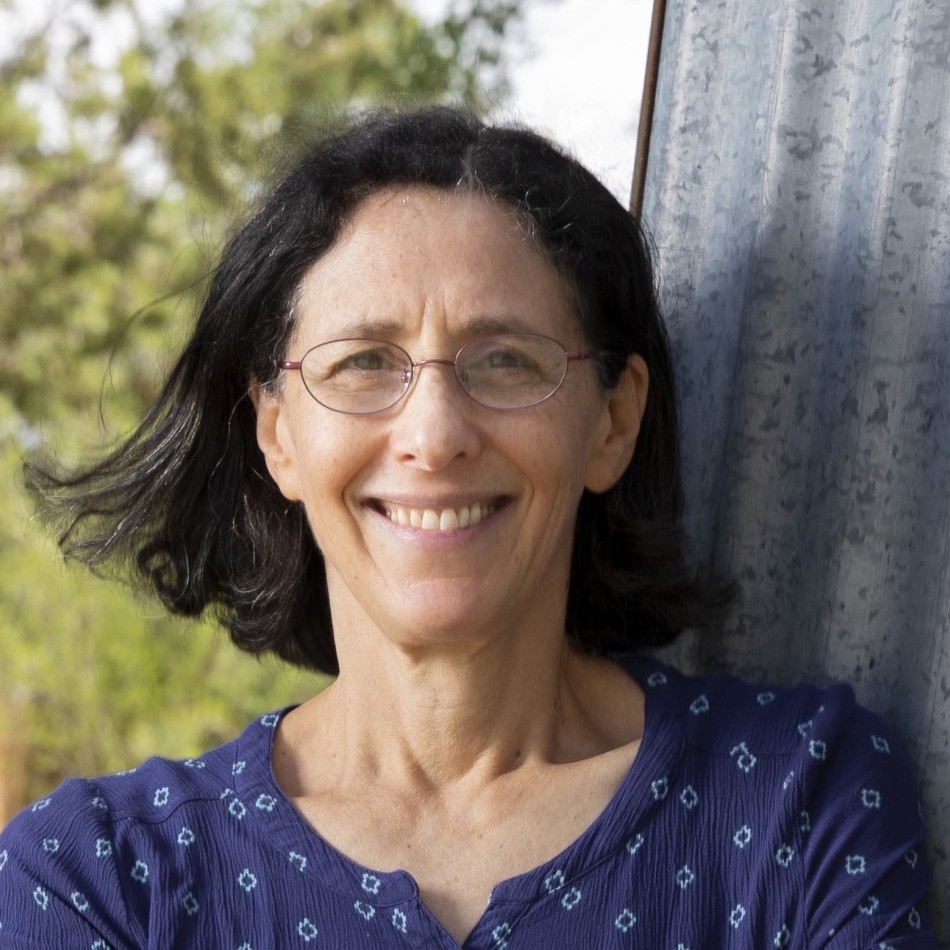 I will survey a current, heated debate in the AI research community on whether large pre-trained language models can be said to "understand" language -- and the physical and social situations language encodes -- in any important sense. I will describe arguments that have been made for and against such understanding, and, more generally, will discuss what methods can be used to fairly evaluate understanding and intelligence in AI systems. I will conclude with key questions for the broader sciences of intelligence that have arisen in light of these discussions.
I will survey a current, heated debate in the AI research community on whether large pre-trained language models can be said to "understand" language -- and the physical and social situations language encodes -- in any important sense. I will describe arguments that have been made for and against such understanding, and, more generally, will discuss what methods can be used to fairly evaluate understanding and intelligence in AI systems. I will conclude with key questions for the broader sciences of intelligence that have arisen in light of these discussions.
-
- Date & Time: Wednesday, January 31, 2024; 12:00 PM
Speaker: Greta Tuckute, MIT
Research Areas: Artificial Intelligence, Machine Learning, Speech & Audio
Abstract 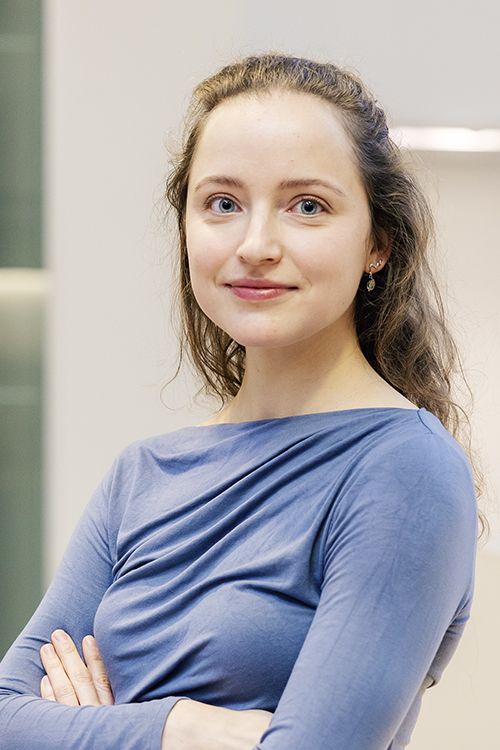 Advances in machine learning have led to powerful models for audio and language, proficient in tasks like speech recognition and fluent language generation. Beyond their immense utility in engineering applications, these models offer valuable tools for cognitive science and neuroscience. In this talk, I will demonstrate how these artificial neural network models can be used to understand how the human brain processes language. The first part of the talk will cover how audio neural networks serve as computational accounts for brain activity in the auditory cortex. The second part will focus on the use of large language models, such as those in the GPT family, to non-invasively control brain activity in the human language system.
Advances in machine learning have led to powerful models for audio and language, proficient in tasks like speech recognition and fluent language generation. Beyond their immense utility in engineering applications, these models offer valuable tools for cognitive science and neuroscience. In this talk, I will demonstrate how these artificial neural network models can be used to understand how the human brain processes language. The first part of the talk will cover how audio neural networks serve as computational accounts for brain activity in the auditory cortex. The second part will focus on the use of large language models, such as those in the GPT family, to non-invasively control brain activity in the human language system.
-
- Date & Time: Tuesday, November 28, 2023; 12:00 PM
Speaker: Kristina Monakhova, MIT and Cornell
MERL Host: Joshua Rapp
Research Areas: Computational Sensing, Computer Vision, Machine Learning, Signal Processing
Abstract 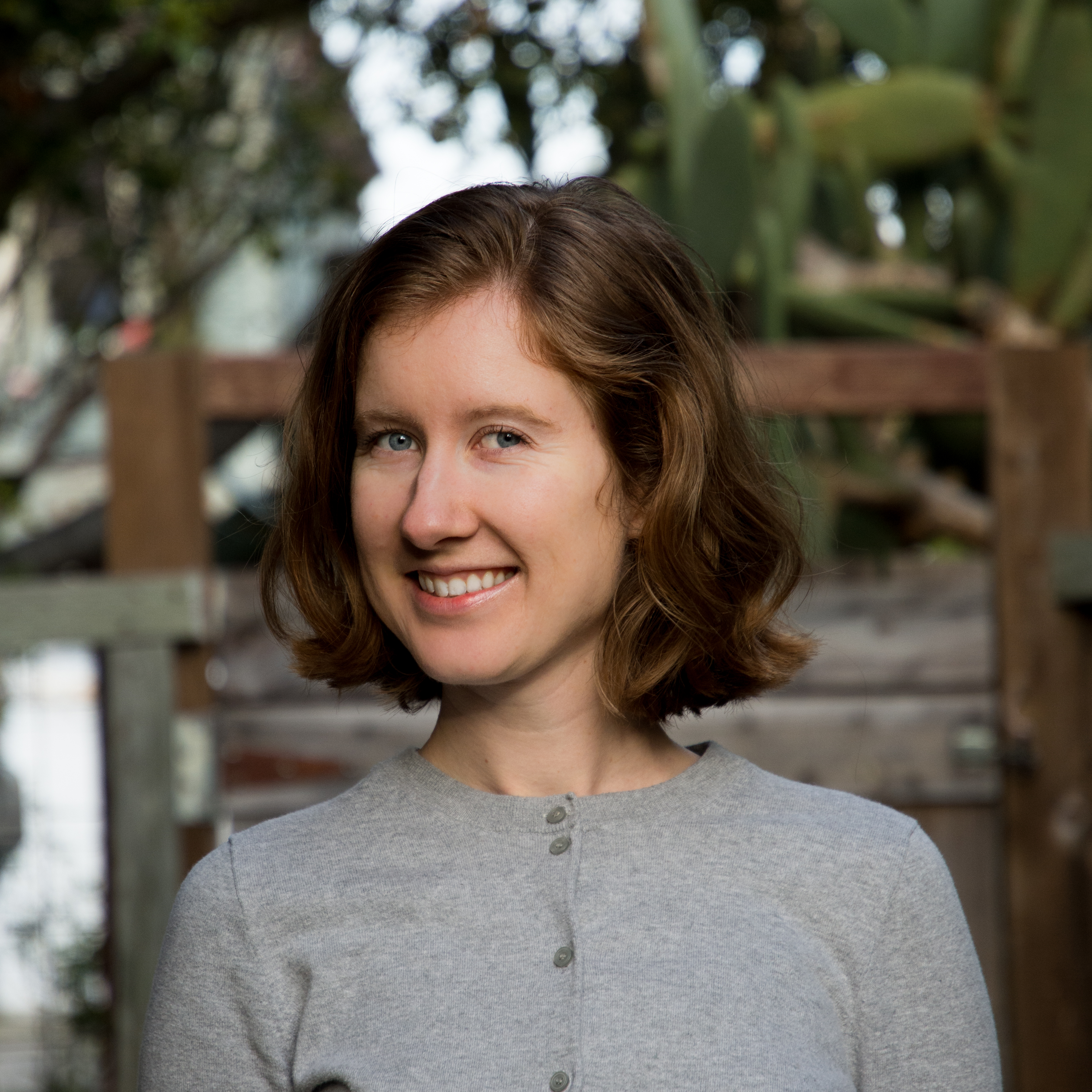 Imaging in low light settings is extremely challenging due to low photon counts, both in photography and in microscopy. In photography, imaging under low light, high gain settings often results in highly structured, non-Gaussian sensor noise that’s hard to characterize or denoise. In this talk, we address this by developing a GAN-tuned physics-based noise model to more accurately represent camera noise at the lowest light, and highest gain settings. Using this noise model, we train a video denoiser using synthetic data and demonstrate photorealistic videography at starlight (submillilux levels of illumination) for the first time.
Imaging in low light settings is extremely challenging due to low photon counts, both in photography and in microscopy. In photography, imaging under low light, high gain settings often results in highly structured, non-Gaussian sensor noise that’s hard to characterize or denoise. In this talk, we address this by developing a GAN-tuned physics-based noise model to more accurately represent camera noise at the lowest light, and highest gain settings. Using this noise model, we train a video denoiser using synthetic data and demonstrate photorealistic videography at starlight (submillilux levels of illumination) for the first time.
For multiphoton microscopy, which is a form a scanning microscopy, there’s a trade-off between field of view, phototoxicity, acquisition time, and image quality, often resulting in noisy measurements. While deep learning-based methods have shown compelling denoising performance, can we trust these methods enough for critical scientific and medical applications? In the second part of this talk, I’ll introduce a learned, distribution-free uncertainty quantification technique that can both denoise and predict pixel-wise uncertainty to gauge how much we can trust our denoiser’s performance. Furthermore, we propose to leverage this learned, pixel-wise uncertainty to drive an adaptive acquisition technique that rescans only the most uncertain regions of a sample. With our sample and algorithm-informed adaptive acquisition, we demonstrate a 120X improvement in total scanning time and total light dose for multiphoton microscopy, while successfully recovering fine structures within the sample.
-
- Date & Time: Tuesday, November 21, 2023; 11:00 AM
Speaker: Gioele Zardini, ETH Zürich and MIT
Research Areas: Control, Dynamical Systems
Abstract 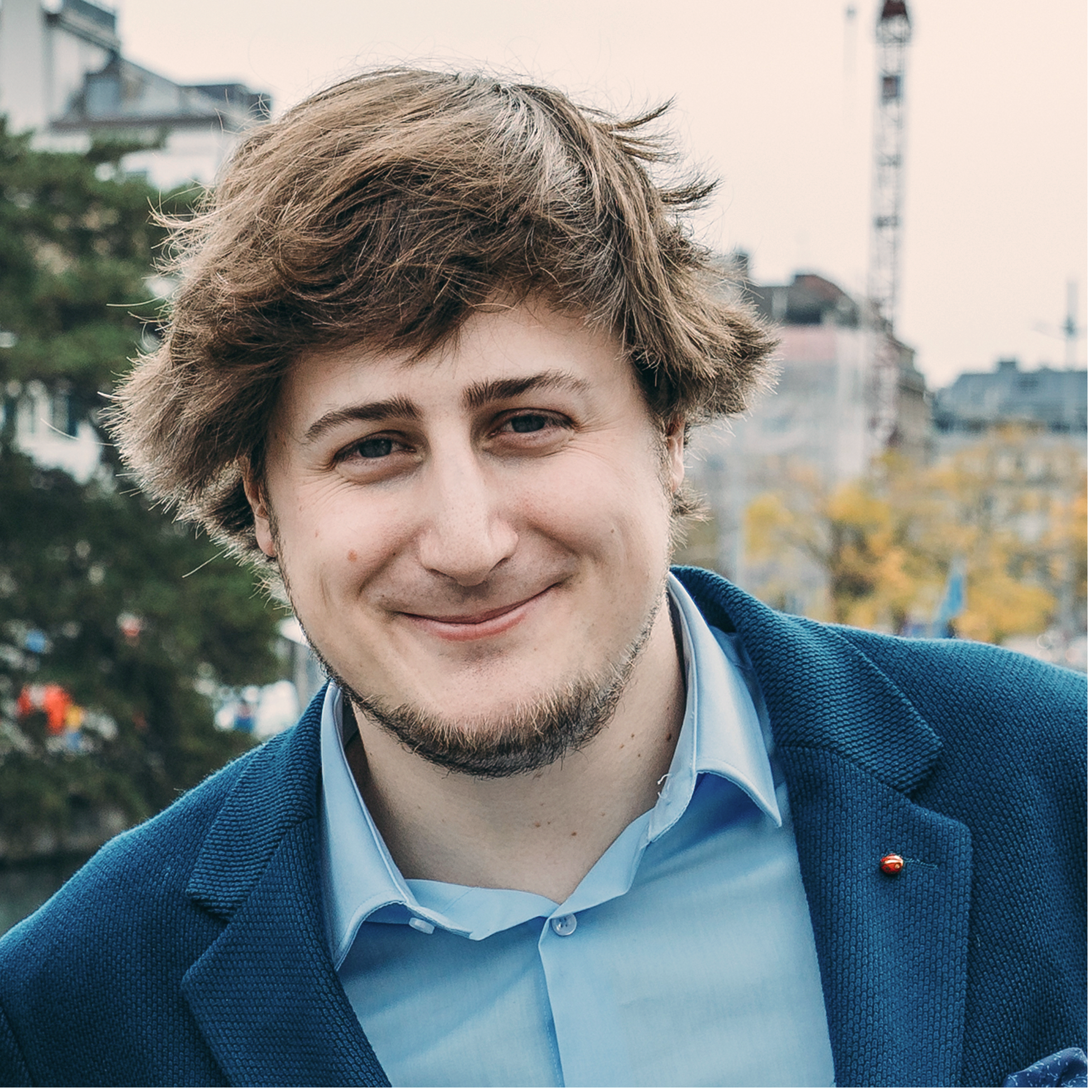 When designing complex systems, we need to consider multiple trade-offs at various abstraction levels and scales, and choices of single components need to be studied jointly. For instance, the design of future mobility solutions (e.g., autonomous vehicles, micromobility) and the design of the mobility systems they enable are closely coupled. Indeed, knowledge about the intended service of novel mobility solutions would impact their design and deployment process, whilst insights about their technological development could significantly affect transportation management policies. Optimally co-designing sociotechnical systems is a complex task for at least two reasons. On one hand, the co-design of interconnected systems (e.g., large networks of cyber-physical systems) involves the simultaneous choice of components arising from heterogeneous natures (e.g., hardware vs. software parts) and fields, while satisfying systemic constraints and accounting for multiple objectives. On the other hand, components are connected via collaborative and conflicting interactions between different stakeholders (e.g., within an intermodal mobility system). In this talk, I will present a framework to co-design complex systems, leveraging a monotone theory of co-design and tools from game theory. The framework will be instantiated in the task of designing future mobility systems, all the way from the policies that a city can design, to the autonomy of vehicles part of an autonomous mobility-on-demand service. Through various case studies, I will show how the proposed approaches allow one to efficiently answer heterogeneous questions, unifying different modeling techniques and promoting interdisciplinarity, modularity, and compositionality. I will then discuss open challenges for compositional systems design optimization, and present my agenda to tackle them.
When designing complex systems, we need to consider multiple trade-offs at various abstraction levels and scales, and choices of single components need to be studied jointly. For instance, the design of future mobility solutions (e.g., autonomous vehicles, micromobility) and the design of the mobility systems they enable are closely coupled. Indeed, knowledge about the intended service of novel mobility solutions would impact their design and deployment process, whilst insights about their technological development could significantly affect transportation management policies. Optimally co-designing sociotechnical systems is a complex task for at least two reasons. On one hand, the co-design of interconnected systems (e.g., large networks of cyber-physical systems) involves the simultaneous choice of components arising from heterogeneous natures (e.g., hardware vs. software parts) and fields, while satisfying systemic constraints and accounting for multiple objectives. On the other hand, components are connected via collaborative and conflicting interactions between different stakeholders (e.g., within an intermodal mobility system). In this talk, I will present a framework to co-design complex systems, leveraging a monotone theory of co-design and tools from game theory. The framework will be instantiated in the task of designing future mobility systems, all the way from the policies that a city can design, to the autonomy of vehicles part of an autonomous mobility-on-demand service. Through various case studies, I will show how the proposed approaches allow one to efficiently answer heterogeneous questions, unifying different modeling techniques and promoting interdisciplinarity, modularity, and compositionality. I will then discuss open challenges for compositional systems design optimization, and present my agenda to tackle them.
-
- Date & Time: Tuesday, November 7, 2023; 12:00 PM
Speaker: Flavio Calmon, Harvard University
MERL Host: Ye Wang
Research Areas: Artificial Intelligence, Machine Learning
Abstract 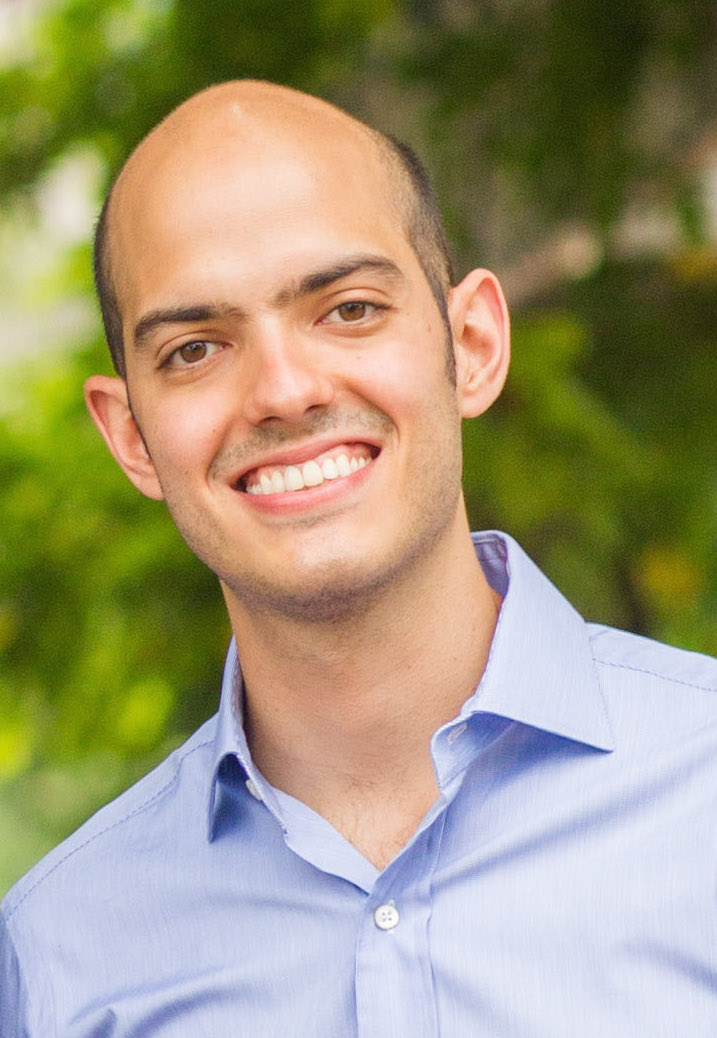 This talk reviews the concept of predictive multiplicity in machine learning. Predictive multiplicity arises when different classifiers achieve similar average performance for a specific learning task yet produce conflicting predictions for individual samples. We discuss a metric called “Rashomon Capacity” for quantifying predictive multiplicity in multi-class classification. We also present recent findings on the multiplicity cost of differentially private training methods and group fairness interventions in machine learning.
This talk reviews the concept of predictive multiplicity in machine learning. Predictive multiplicity arises when different classifiers achieve similar average performance for a specific learning task yet produce conflicting predictions for individual samples. We discuss a metric called “Rashomon Capacity” for quantifying predictive multiplicity in multi-class classification. We also present recent findings on the multiplicity cost of differentially private training methods and group fairness interventions in machine learning.
This talk is based on work published at ICML'20, NeurIPS'22, ACM FAccT'23, and NeurIPS'23.
-
- Date & Time: Tuesday, October 31, 2023; 2:00 PM
Speaker: Tanmay Gupta, Allen Institute for Artificial Intelligence
MERL Host: Moitreya Chatterjee
Research Areas: Artificial Intelligence, Computer Vision, Machine Learning
Abstract 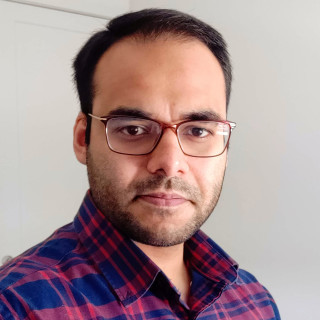 Building General Purpose Vision Systems (GPVs) that can perform a huge variety of tasks has been a long-standing goal for the computer vision community. However, end-to-end training of these systems to handle different modalities and tasks has proven to be extremely challenging. In this talk, I will describe a lucrative neuro-symbolic alternative to the common end-to-end learning paradigm called Visual Programming. Visual Programming is a general framework that leverages the code-generation abilities of LLMs, existing neural models, and non-differentiable programs to enable powerful applications. Some of these applications continue to remain elusive for the current generation of end-to-end trained GPVs.
Building General Purpose Vision Systems (GPVs) that can perform a huge variety of tasks has been a long-standing goal for the computer vision community. However, end-to-end training of these systems to handle different modalities and tasks has proven to be extremely challenging. In this talk, I will describe a lucrative neuro-symbolic alternative to the common end-to-end learning paradigm called Visual Programming. Visual Programming is a general framework that leverages the code-generation abilities of LLMs, existing neural models, and non-differentiable programs to enable powerful applications. Some of these applications continue to remain elusive for the current generation of end-to-end trained GPVs.
-
- Date & Time: Wednesday, November 15, 2023; 3:00-3:40pm (EST)
Location: Virtual Event
Speaker: Prof. Yuejie Chi, Carnegie Mellon University
MERL Contact: Bingnan Wang Brief - MERL is excited to announce the featured keynote speaker for our Virtual Open House 2023: Prof. Yuejie Chi from Carnegie Mellon University.
Our virtual open house this year will take place on November 15, 2023, 1:00pm - 5:30pm (EST). Prof. Chi’s talk is scheduled for 3:00-3:40pm (EST). For details and agenda of the event, please visit: https://merl.com/events/voh23
Join us to learn more about who we are, what we do, and discuss our internship, post-doc, and full-time employment opportunities. To register, go to: https://mailchi.mp/merl/voh23
Title: Sample Complexity of Q-learning: from Single-agent to Federated Learning
Abstract: Q-learning, which seeks to learn the optimal Q-function of a Markov decision process (MDP) in a model-free fashion, lies at the heart of reinforcement learning practices. However, theoretical understandings on its non-asymptotic sample complexity remain unsatisfactory, despite significant recent efforts. In this talk, we first show a tight sample complexity bound of Q-learning in the single-agent setting, together with a matching lower bound to establish its minimax sub-optimality. We then show how federated versions of Q-learning allow collaborative learning using data collected by multiple agents without central sharing, where an importance averaging scheme is introduced to unveil the blessing of heterogeneity.
-
- Date: Thursday, October 26, 2023
Location: New York University, Brooklyn, New York, NY
MERL Contacts: Jonathan Le Roux; Gordon Wichern
Research Areas: Artificial Intelligence, Machine Learning, Speech & Audio
Brief - SANE 2023, a one-day event gathering researchers and students in speech and audio from the Northeast of the American continent, was held on Thursday October 26, 2023 at NYU in Brooklyn, New York.
It was the 10th edition in the SANE series of workshops, which started in 2012 and is typically held every year alternately in Boston and New York. Since the first edition, the audience has steadily grown, and SANE 2023 broke SANE 2019's record with 200 participants and 51 posters.
This year's SANE took place in conjunction with the WASPAA workshop, held October 22-25 in upstate New York.
SANE 2023 featured invited talks by seven leading researchers from the Northeast and beyond: Arsha Nagrani (Google), Gaël Richard (Télécom Paris), Gordon Wichern (MERL), Kyunghyun Cho (NYU / Prescient Design), Anna Huang (Google DeepMind / MILA), Wenwu Wang (University of Surrey), and Yuan Gong (MIT). It also featured a lively poster session with 51 posters.
SANE 2023 was co-organized by Jonathan Le Roux (MERL), Juan P. Bello (NYU), and John R. Hershey (Google). SANE remained a free event thanks to generous sponsorship by NYU, MERL, Google, Adobe, Bose, Meta Reality Labs, and Amazon.
Slides and videos of the talks are available from the SANE workshop website.
-
- Date & Time: Wednesday, November 15, 2023; 1:00 - 5:30 EST
Location: Virtual Event
MERL Contact: Bingnan Wang Brief - Join us for MERL's Virtual Open House (VOH) 2023 on November 15th. Live sessions will be held from 1:00-5:30pm EST, including an overview of recent activities by our research groups, a featured guest speaker and live interaction with our research staff through the Gather platform. Registered attendees will be able to browse our virtual booths at their convenience and connect with our research staff to learn about engagement opportunities, including internship/post-doc openings as well as visiting faculty positions.
For agenda and details of the event: https://www.merl.com/events/voh23
To register for the VOH, go to:
https://mailchi.mp/merl/voh23
-
- Date & Time: Tuesday, October 10, 2023; 1:00 PM
Speaker: Shaoshuai Mou, Purdue University
MERL Host: Yebin Wang
Research Areas: Control, Dynamical Systems, Robotics
Abstract 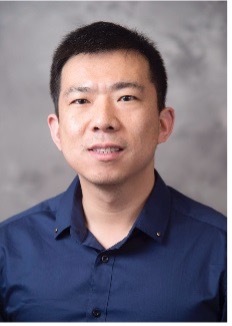 Inverse Optimal Control (IOC) aims to achieve an objective function corresponding to a certain task from an expert robot driven by optimal control, which has become a powerful tool in many applications in robotics. We will present our recent solutions to IOC based on incomplete observations of systems' trajectories, which enables an autonomous system to “sense-and-adapt", i.e., incrementally improving the learning of objective functions as new data arrives. This also leads to a distributed algorithm to solve IOC in multi-agent systems, in which each agent can only access part of the overall trajectory of an optimal control system and cannot solve IOC by itself. This is perhaps the first distributed method to IOC. Applications of IOC into human prediction will also be given.
Inverse Optimal Control (IOC) aims to achieve an objective function corresponding to a certain task from an expert robot driven by optimal control, which has become a powerful tool in many applications in robotics. We will present our recent solutions to IOC based on incomplete observations of systems' trajectories, which enables an autonomous system to “sense-and-adapt", i.e., incrementally improving the learning of objective functions as new data arrives. This also leads to a distributed algorithm to solve IOC in multi-agent systems, in which each agent can only access part of the overall trajectory of an optimal control system and cannot solve IOC by itself. This is perhaps the first distributed method to IOC. Applications of IOC into human prediction will also be given.
-
- Date & Time: Thursday, September 28, 2023; 12:00 PM
Speaker: Komei Sugiura, Keio University
MERL Host: Chiori Hori
Research Areas: Artificial Intelligence, Machine Learning, Robotics, Speech & Audio
Abstract 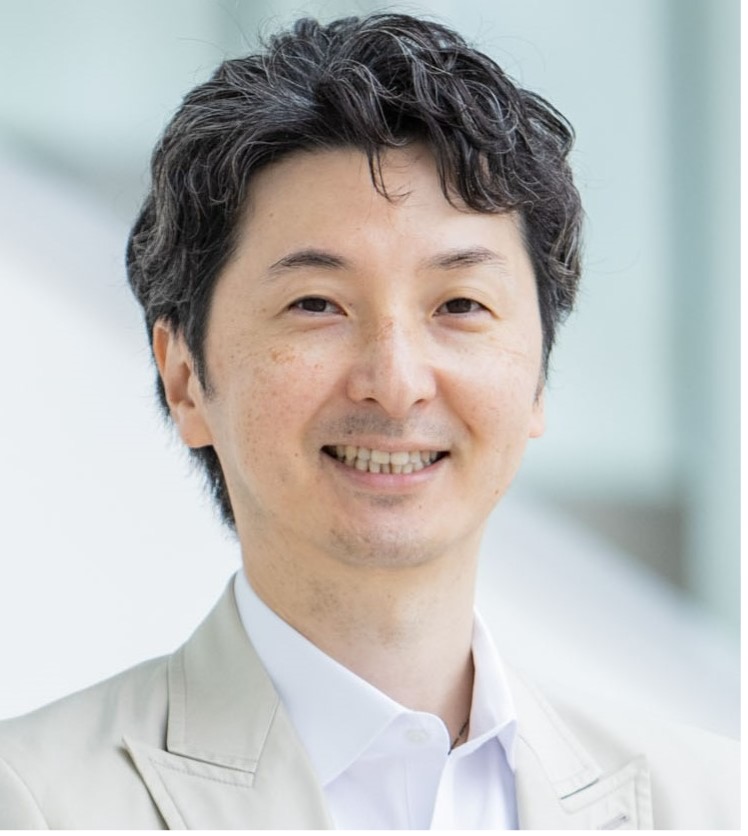 Recent advances in multimodal models that fuse vision and language are revolutionizing robotics. In this lecture, I will begin by introducing recent multimodal foundational models and their applications in robotics. The second topic of this talk will address our recent work on multimodal language processing in robotics. The shortage of home care workers has become a pressing societal issue, and the use of domestic service robots (DSRs) to assist individuals with disabilities is seen as a possible solution. I will present our work on DSRs that are capable of open-vocabulary mobile manipulation, referring expression comprehension and segmentation models for everyday objects, and future captioning methods for cooking videos and DSRs.
Recent advances in multimodal models that fuse vision and language are revolutionizing robotics. In this lecture, I will begin by introducing recent multimodal foundational models and their applications in robotics. The second topic of this talk will address our recent work on multimodal language processing in robotics. The shortage of home care workers has become a pressing societal issue, and the use of domestic service robots (DSRs) to assist individuals with disabilities is seen as a possible solution. I will present our work on DSRs that are capable of open-vocabulary mobile manipulation, referring expression comprehension and segmentation models for everyday objects, and future captioning methods for cooking videos and DSRs.
-
- Date & Time: Wednesday, September 27, 2023; 1:00 PM
Speaker: Zac Manchester, Carnegie Mellon University
Research Areas: Optimization, Robotics
Abstract 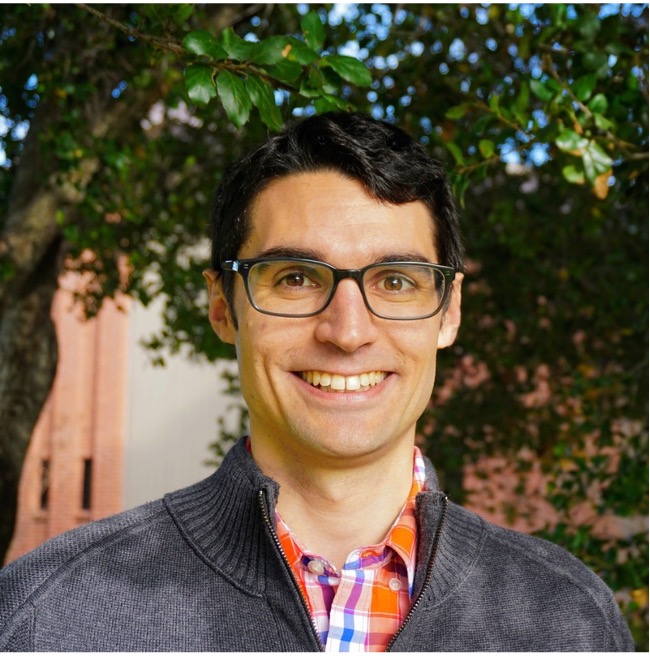 Contact interactions are pervasive in key real-world robotic tasks like manipulation and walking. However, the non-smooth dynamics associated with impacts and friction remain challenging to model, and motion planning and control algorithms that can fluently and efficiently reason about contact remain elusive. In this talk, I will share recent work from my research group that takes an “optimization-first” approach to these challenges: collision detection, physics, motion planning, and control are all posed as constrained optimization problems. We then build a set of algorithmic and numerical tools that allow us to flexibly compose these optimization sub-problems to solve complex robotics problems involving discontinuous, unplanned, and uncertain contact mechanics.
Contact interactions are pervasive in key real-world robotic tasks like manipulation and walking. However, the non-smooth dynamics associated with impacts and friction remain challenging to model, and motion planning and control algorithms that can fluently and efficiently reason about contact remain elusive. In this talk, I will share recent work from my research group that takes an “optimization-first” approach to these challenges: collision detection, physics, motion planning, and control are all posed as constrained optimization problems. We then build a set of algorithmic and numerical tools that allow us to flexibly compose these optimization sub-problems to solve complex robotics problems involving discontinuous, unplanned, and uncertain contact mechanics.
-
- Date & Time: Tuesday, September 19, 2023; 1:00 PM
Speaker: Faruque Hasan, Texas A&M University
MERL Host: Scott A. Bortoff
Research Areas: Applied Physics, Machine Learning, Multi-Physical Modeling, Optimization
Abstract 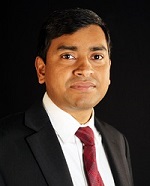 Carbon capture, utilization, and storage (CCUS) is a promising pathway to decarbonize fossil-based power and industrial sectors and is a bridging technology for a sustainable transition to a net-zero emission energy future. This talk aims to provide an overview of design and optimization of CCUS systems. I will also attempt to give a brief perspective on emerging interests in process systems engineering research (e.g., systems integration, multiscale modeling, strategic planning, and optimization under uncertainty). The purpose is not to cover all aspects of PSE research for CCUS but rather to foster discussion by presenting some plausible future directions and ideas.
Carbon capture, utilization, and storage (CCUS) is a promising pathway to decarbonize fossil-based power and industrial sectors and is a bridging technology for a sustainable transition to a net-zero emission energy future. This talk aims to provide an overview of design and optimization of CCUS systems. I will also attempt to give a brief perspective on emerging interests in process systems engineering research (e.g., systems integration, multiscale modeling, strategic planning, and optimization under uncertainty). The purpose is not to cover all aspects of PSE research for CCUS but rather to foster discussion by presenting some plausible future directions and ideas.
-
- Date: Friday, August 4, 2023
Location: MERL's Offices, 201 Broadway, Cambridge, MA
Speaker: Carole-Jean Wu, PhD, Meta AI / Fair
MERL Contacts: Elizabeth Phillips; Anthony Vetro Brief - MERL hosted its annual Women in Science luncheon. Carole-Jean Wu, PhD, joined our event to lead a talk on Scaling AI Computing Sustainably. She shared key challenges across the many dimensions of AI, on what and how at-scale optimization can help reduce the overall carbon footprint of AI and computing. Dr. Wu is a Research Scientist and Technical Lead Manager at Meta AI / FAIR. Prior to Meta/Facebook, she was an Associate Professor at ASU.
As part of this celebration, MERL will be making a donation to Science Club for Girls in Cambridge, MA.
Science Club for Girls' mission is to foster excitement, confidence, and literacy in science, technology, engineering, and mathematics (STEM) for girls and gender-expansive youth from underrepresented communities by providing free, experiential programs and by maximizing meaningful interactions with women-in-STEM mentors.
https://www.scienceclubforgirls.org
-
- Date: Sunday, June 4, 2023 - , June 10, 2023
Location: Rhodes Island, Greece
MERL Contacts: Petros T. Boufounos; Toshiaki Koike-Akino; Jonathan Le Roux; Dehong Liu; Suhas Lohit; Yanting Ma; Hassan Mansour; Joshua Rapp; Anthony Vetro; Pu (Perry) Wang; Gordon Wichern
Research Areas: Artificial Intelligence, Computational Sensing, Machine Learning, Signal Processing, Speech & Audio
Brief - MERL has made numerous contributions to both the organization and technical program of ICASSP 2023, which is being held in Rhodes Island, Greece from June 4-10, 2023.
Organization
Petros Boufounos is serving as General Co-Chair of the conference this year, where he has been involved in all aspects of conference planning and execution.
Perry Wang is the organizer of a special session on Radar-Assisted Perception (RAP), which will be held on Wednesday, June 7. The session will feature talks on signal processing and deep learning for radar perception, pose estimation, and mutual interference mitigation with speakers from both academia (Carnegie Mellon University, Virginia Tech, University of Illinois Urbana-Champaign) and industry (Mitsubishi Electric, Bosch, Waveye).
Anthony Vetro is the co-organizer of the Workshop on Signal Processing for Autonomous Systems (SPAS), which will be held on Monday, June 5, and feature invited talks from leaders in both academia and industry on timely topics related to autonomous systems.
Sponsorship
MERL is proud to be a Silver Patron of the conference and will participate in the student job fair on Thursday, June 8. Please join this session to learn more about employment opportunities at MERL, including openings for research scientists, post-docs, and interns.
MERL is pleased to be the sponsor of two IEEE Awards that will be presented at the conference. We congratulate Prof. Rabab Ward, the recipient of the 2023 IEEE Fourier Award for Signal Processing, and Prof. Alexander Waibel, the recipient of the 2023 IEEE James L. Flanagan Speech and Audio Processing Award.
Technical Program
MERL is presenting 13 papers in the main conference on a wide range of topics including source separation and speech enhancement, radar imaging, depth estimation, motor fault detection, time series recovery, and point clouds. One workshop paper has also been accepted for presentation on self-supervised music source separation.
Perry Wang has been invited to give a keynote talk on Wi-Fi sensing and related standards activities at the Workshop on Integrated Sensing and Communications (ISAC), which will be held on Sunday, June 4.
Additionally, Anthony Vetro will present a Perspective Talk on Physics-Grounded Machine Learning, which is scheduled for Thursday, June 8.
About ICASSP
ICASSP is the flagship conference of the IEEE Signal Processing Society, and the world's largest and most comprehensive technical conference focused on the research advances and latest technological development in signal and information processing. The event attracts more than 2000 participants each year.
-
- Date & Time: Wednesday, May 17, 2023; 1:00 PM
Speaker: Mark Ku, The University of Delaware
MERL Host: Chungwei Lin
Research Areas: Applied Physics, Computational Sensing
Abstract 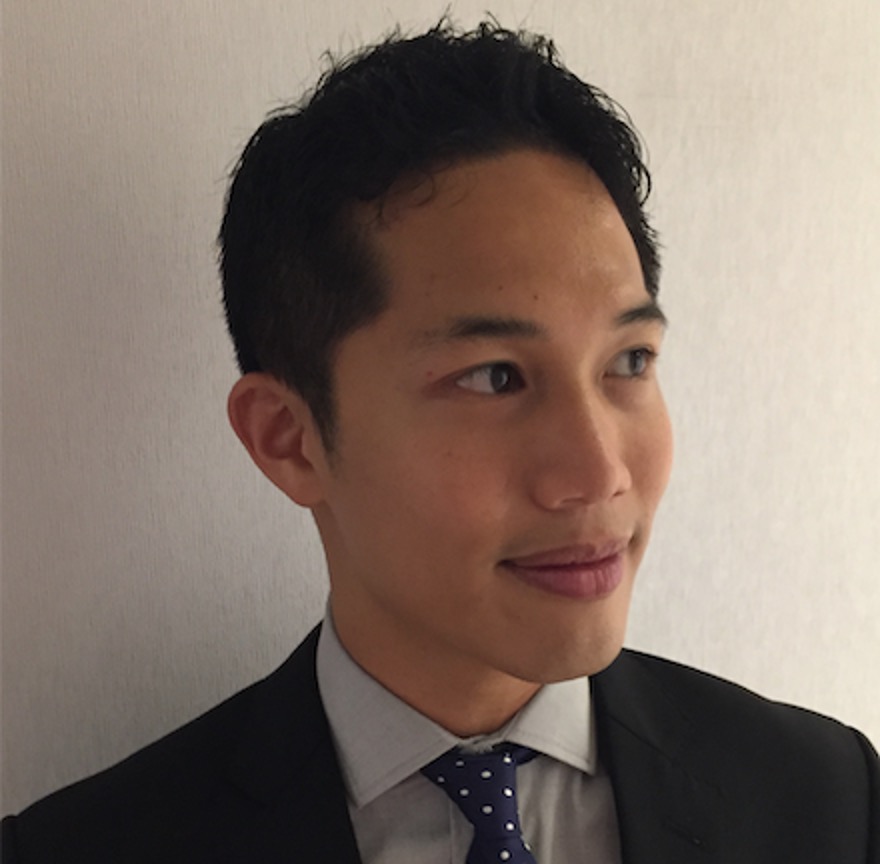 Quantum technology holds potential for revolutionizing how information is processed, transmitted, and acquired. While quantum computation and quantum communication have been among the well-known examples of quantum technology, it is increasingly recognized that quantum sensing is the application with the most potential for immediate wide-spread practical utilization. In this talk, I will provide an overview of the field of quantum sensing with nitrogen vacancy (NV) centers in diamond as a specific example. I will introduce the physical system of NV and describe some basic quantum sensing protocols. Then, I will present some state-of-the-art and examples where quantum sensors such as NV can accomplish what traditional sensors cannot. Lastly, I will discuss potential future directions in the area of NV quantum sensing.
Quantum technology holds potential for revolutionizing how information is processed, transmitted, and acquired. While quantum computation and quantum communication have been among the well-known examples of quantum technology, it is increasingly recognized that quantum sensing is the application with the most potential for immediate wide-spread practical utilization. In this talk, I will provide an overview of the field of quantum sensing with nitrogen vacancy (NV) centers in diamond as a specific example. I will introduce the physical system of NV and describe some basic quantum sensing protocols. Then, I will present some state-of-the-art and examples where quantum sensors such as NV can accomplish what traditional sensors cannot. Lastly, I will discuss potential future directions in the area of NV quantum sensing.
-
- Date & Time: Tuesday, April 25, 2023; 11:00 AM
Speaker: Dan Stowell, Tilburg University / Naturalis Biodiversity Centre
MERL Host: Gordon Wichern
Research Areas: Artificial Intelligence, Machine Learning, Speech & Audio
Abstract 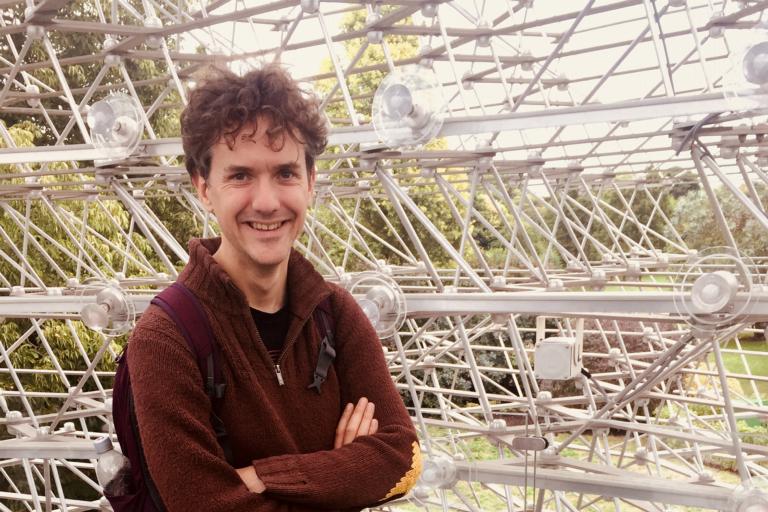 Machine learning can be used to identify animals from their sound. This could be a valuable tool for biodiversity monitoring, and for understanding animal behaviour and communication. But to get there, we need very high accuracy at fine-grained acoustic distinctions across hundreds of categories in diverse conditions. In our group we are studying how to achieve this at continental scale. I will describe aspects of bioacoustic data that challenge even the latest deep learning workflows, and our work to address this. Methods covered include adaptive feature representations, deep embeddings and few-shot learning.
Machine learning can be used to identify animals from their sound. This could be a valuable tool for biodiversity monitoring, and for understanding animal behaviour and communication. But to get there, we need very high accuracy at fine-grained acoustic distinctions across hundreds of categories in diverse conditions. In our group we are studying how to achieve this at continental scale. I will describe aspects of bioacoustic data that challenge even the latest deep learning workflows, and our work to address this. Methods covered include adaptive feature representations, deep embeddings and few-shot learning.
-
- Date & Time: Tuesday, April 11, 2023; 11:00 AM
Speaker: Michael Muehlebach, Max Planck Institute for Intelligent Systems
Research Areas: Control, Dynamical Systems, Machine Learning, Optimization, Robotics
Abstract 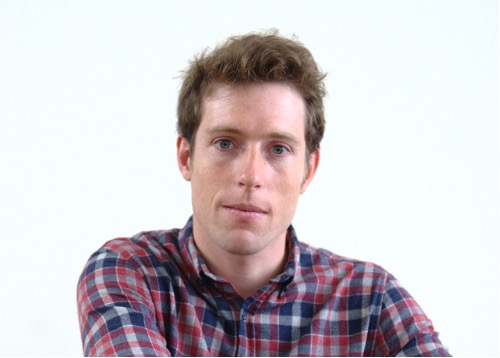 The talk will be divided into two parts. The first part of the talk introduces a class of first-order methods for constrained optimization that are based on an analogy to non-smooth dynamical systems. The key underlying idea is to express constraints in terms of velocities instead of positions, which has the algorithmic consequence that optimizations over feasible sets at each iteration are replaced with optimizations over local, sparse convex approximations. This results is a simplified suite of algorithms and an expanded range of possible applications in machine learning. In the second part of my talk, I will present a robot learning algorithm for trajectory tracking. The method incorporates prior knowledge about the system dynamics and by optimizing over feedforward actions, the risk of instability during deployment is mitigated. The algorithm will be evaluated on a ping-pong playing robot that is actuated by soft pneumatic muscles.
The talk will be divided into two parts. The first part of the talk introduces a class of first-order methods for constrained optimization that are based on an analogy to non-smooth dynamical systems. The key underlying idea is to express constraints in terms of velocities instead of positions, which has the algorithmic consequence that optimizations over feasible sets at each iteration are replaced with optimizations over local, sparse convex approximations. This results is a simplified suite of algorithms and an expanded range of possible applications in machine learning. In the second part of my talk, I will present a robot learning algorithm for trajectory tracking. The method incorporates prior knowledge about the system dynamics and by optimizing over feedforward actions, the risk of instability during deployment is mitigated. The algorithm will be evaluated on a ping-pong playing robot that is actuated by soft pneumatic muscles.
-
- Date & Time: Wednesday, March 29, 2023; 1:00 PM
Speaker: Zoltan Nagy, The University of Texas at Austin
Research Areas: Control, Machine Learning, Multi-Physical Modeling
Abstract 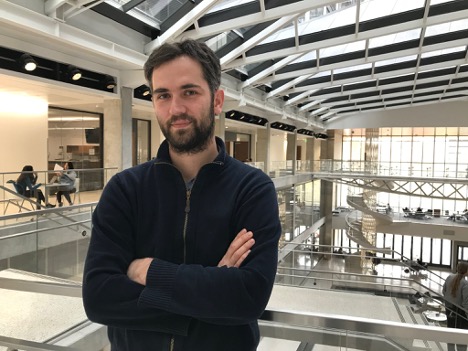 The decarbonization of buildings presents new challenges for the reliability of the electrical grid because of the intermittency of renewable energy sources and increase in grid load brought about by end-use electrification. To restore reliability, grid-interactive efficient buildings can provide flexibility services to the grid through demand response. Residential demand response programs are hindered by the need for manual intervention by customers. To maximize the energy flexibility potential of residential buildings, an advanced control architecture is needed. Reinforcement learning is well-suited for the control of flexible resources as it can adapt to unique building characteristics compared to expert systems. Yet, factors hindering the adoption of RL in real-world applications include its large data requirements for training, control security and generalizability. This talk will cover some of our recent work addressing these challenges. We proposed the MERLIN framework and developed a digital twin of a real-world 17-building grid-interactive residential community in CityLearn. We show that 1) independent RL-controllers for batteries improve building and district level KPIs compared to a reference RBC by tailoring their policies to individual buildings, 2) despite unique occupant behaviors, transferring the RL policy of any one of the buildings to other buildings provides comparable performance while reducing the cost of training, 3) training RL-controllers on limited temporal data that does not capture full seasonality in occupant behavior has little effect on performance. Although, the zero-net-energy (ZNE) condition of the buildings could be maintained or worsened because of controlled batteries, KPIs that are typically improved by ZNE condition (electricity price and carbon emissions) are further improved when the batteries are managed by an advanced controller.
The decarbonization of buildings presents new challenges for the reliability of the electrical grid because of the intermittency of renewable energy sources and increase in grid load brought about by end-use electrification. To restore reliability, grid-interactive efficient buildings can provide flexibility services to the grid through demand response. Residential demand response programs are hindered by the need for manual intervention by customers. To maximize the energy flexibility potential of residential buildings, an advanced control architecture is needed. Reinforcement learning is well-suited for the control of flexible resources as it can adapt to unique building characteristics compared to expert systems. Yet, factors hindering the adoption of RL in real-world applications include its large data requirements for training, control security and generalizability. This talk will cover some of our recent work addressing these challenges. We proposed the MERLIN framework and developed a digital twin of a real-world 17-building grid-interactive residential community in CityLearn. We show that 1) independent RL-controllers for batteries improve building and district level KPIs compared to a reference RBC by tailoring their policies to individual buildings, 2) despite unique occupant behaviors, transferring the RL policy of any one of the buildings to other buildings provides comparable performance while reducing the cost of training, 3) training RL-controllers on limited temporal data that does not capture full seasonality in occupant behavior has little effect on performance. Although, the zero-net-energy (ZNE) condition of the buildings could be maintained or worsened because of controlled batteries, KPIs that are typically improved by ZNE condition (electricity price and carbon emissions) are further improved when the batteries are managed by an advanced controller.
-
- Date & Time: Tuesday, March 14, 2023; 1:00 PM
Speaker: Suraj Srinivas, Harvard University
MERL Host: Suhas Lohit
Research Areas: Artificial Intelligence, Computer Vision, Machine Learning
Abstract 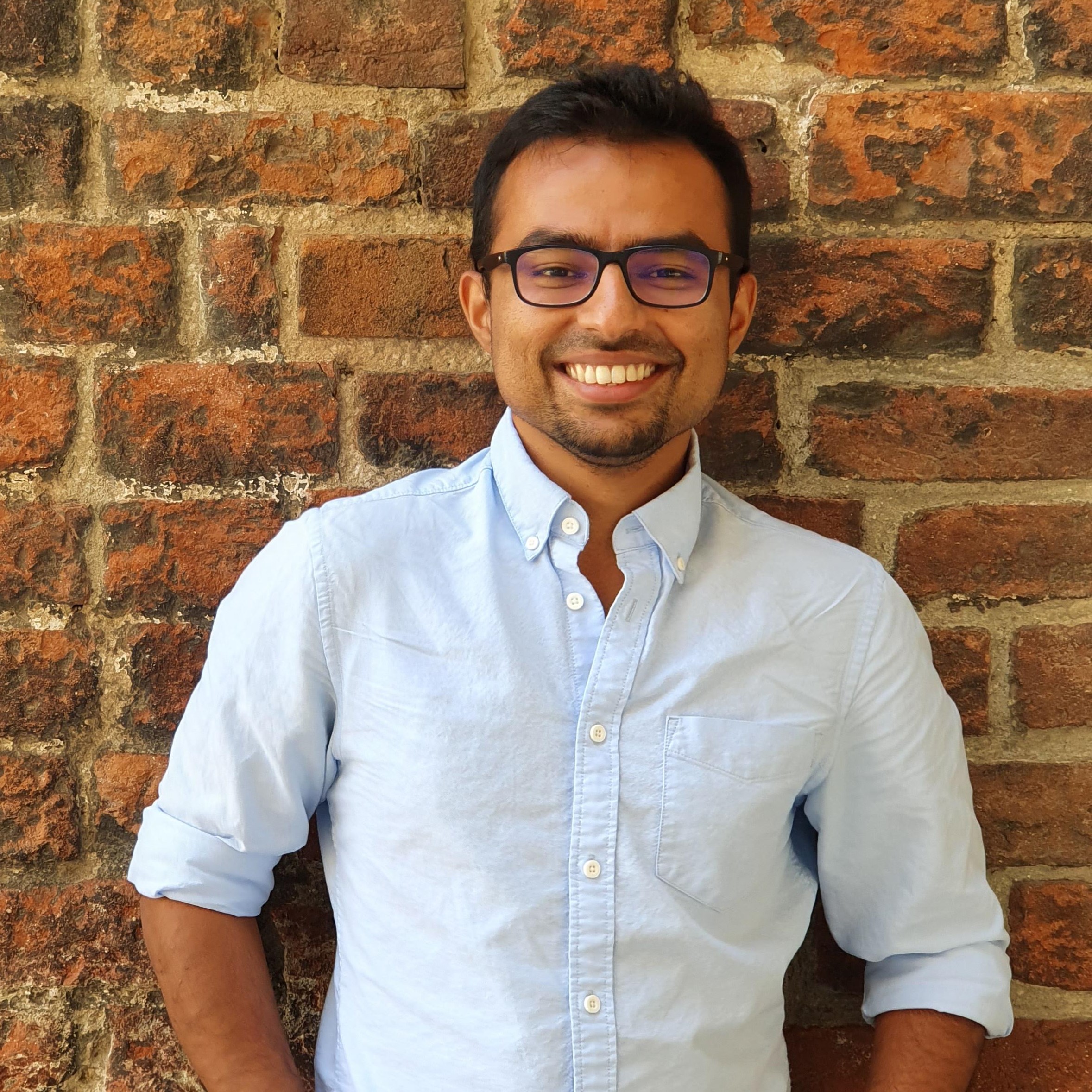 In this talk, I will discuss our recent research on understanding post-hoc interpretability. I will begin by introducing a characterization of post-hoc interpretability methods as local function approximators, and the implications of this viewpoint, including a no-free-lunch theorem for explanations. Next, we shall challenge the assumption that post-hoc explanations provide information about a model's discriminative capabilities p(y|x) and instead demonstrate that many common methods instead rely on a conditional generative model p(x|y). This observation underscores the importance of being cautious when using such methods in practice. Finally, I will propose to resolve this via regularization of model structure, specifically by training low curvature neural networks, resulting in improved model robustness and stable gradients.
In this talk, I will discuss our recent research on understanding post-hoc interpretability. I will begin by introducing a characterization of post-hoc interpretability methods as local function approximators, and the implications of this viewpoint, including a no-free-lunch theorem for explanations. Next, we shall challenge the assumption that post-hoc explanations provide information about a model's discriminative capabilities p(y|x) and instead demonstrate that many common methods instead rely on a conditional generative model p(x|y). This observation underscores the importance of being cautious when using such methods in practice. Finally, I will propose to resolve this via regularization of model structure, specifically by training low curvature neural networks, resulting in improved model robustness and stable gradients.
-
- Date & Time: Wednesday, March 1, 2023; 1:00 PM
Speaker: Shaowu Pan, Rensselaer Polytechnic Institute
MERL Host: Saviz Mowlavi
Research Areas: Computational Sensing, Data Analytics, Machine Learning
Abstract 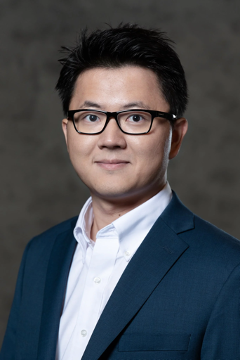 High-dimensional spatio-temporal dynamics can often be encoded in a low-dimensional subspace. Engineering applications for modeling, characterization, design, and control of such large-scale systems often rely on dimensionality reduction to make solutions computationally tractable in real-time. Common existing paradigms for dimensionality reduction include linear methods, such as the singular value decomposition (SVD), and nonlinear methods, such as variants of convolutional autoencoders (CAE). However, these encoding techniques lack the ability to efficiently represent the complexity associated with spatio-temporal data, which often requires variable geometry, non-uniform grid resolution, adaptive meshing, and/or parametric dependencies. To resolve these practical engineering challenges, we propose a general framework called Neural Implicit Flow (NIF) that enables a mesh-agnostic, low-rank representation of large-scale, parametric, spatial-temporal data. NIF consists of two modified multilayer perceptrons (MLPs): (i) ShapeNet, which isolates and represents the spatial complexity, and (ii) ParameterNet, which accounts for any other input complexity, including parametric dependencies, time, and sensor measurements. We demonstrate the utility of NIF for parametric surrogate modeling, enabling the interpretable representation and compression of complex spatio-temporal dynamics, efficient many-spatial-query tasks, and improved generalization performance for sparse reconstruction.
High-dimensional spatio-temporal dynamics can often be encoded in a low-dimensional subspace. Engineering applications for modeling, characterization, design, and control of such large-scale systems often rely on dimensionality reduction to make solutions computationally tractable in real-time. Common existing paradigms for dimensionality reduction include linear methods, such as the singular value decomposition (SVD), and nonlinear methods, such as variants of convolutional autoencoders (CAE). However, these encoding techniques lack the ability to efficiently represent the complexity associated with spatio-temporal data, which often requires variable geometry, non-uniform grid resolution, adaptive meshing, and/or parametric dependencies. To resolve these practical engineering challenges, we propose a general framework called Neural Implicit Flow (NIF) that enables a mesh-agnostic, low-rank representation of large-scale, parametric, spatial-temporal data. NIF consists of two modified multilayer perceptrons (MLPs): (i) ShapeNet, which isolates and represents the spatial complexity, and (ii) ParameterNet, which accounts for any other input complexity, including parametric dependencies, time, and sensor measurements. We demonstrate the utility of NIF for parametric surrogate modeling, enabling the interpretable representation and compression of complex spatio-temporal dynamics, efficient many-spatial-query tasks, and improved generalization performance for sparse reconstruction.
-
- Date & Time: Tuesday, February 28, 2023; 12:00 PM
Speaker: Prof. Kevin Lynch, Northwestern University
MERL Host: Diego Romeres
Research Areas: Machine Learning, Robotics
Abstract - Research at the Center for Robotics and Biosystems at Northwestern University includes bio-inspiration, neuromechanics, human-machine systems, and swarm robotics, among other topics. In this talk I will focus on our work on manipulation, including autonomous in-hand robotic manipulation and safe, intuitive human-collaborative manipulation among one or more humans and a team of mobile manipulators.
-
- Date & Time: Tuesday, February 14, 2023; 12:00 PM
Speaker: Stefanie Tellex, Brown University
MERL Host: Daniel N. Nikovski
Research Area: Robotics
Abstract - Robots can act as a force multiplier for people, whether a robot assisting an astronaut with a repair on the International Space station, a UAV taking flight over our cities, or an autonomous vehicle driving through our streets. Existing approaches use action-based representations that do not capture the goal-based meaning of a language expression and do not generalize to partially observed environments. The aim of my research program is to create autonomous robots that can understand complex goal-based commands and execute those commands in partially observed, dynamic environments. I will describe demonstrations of object-search in a POMDP setting with information about object locations provided by language, and mapping between English and Linear Temporal Logic, enabling a robot to understand complex natural language commands in city-scale environments. These advances represent steps towards robots that interpret complex natural language commands in partially observed environments using a decision theoretic framework.
-
- Date & Time: Tuesday, January 31, 2023; 11:00 AM
Speaker: Rupert way, University of Oxford
MERL Host: Ye Wang Abstract 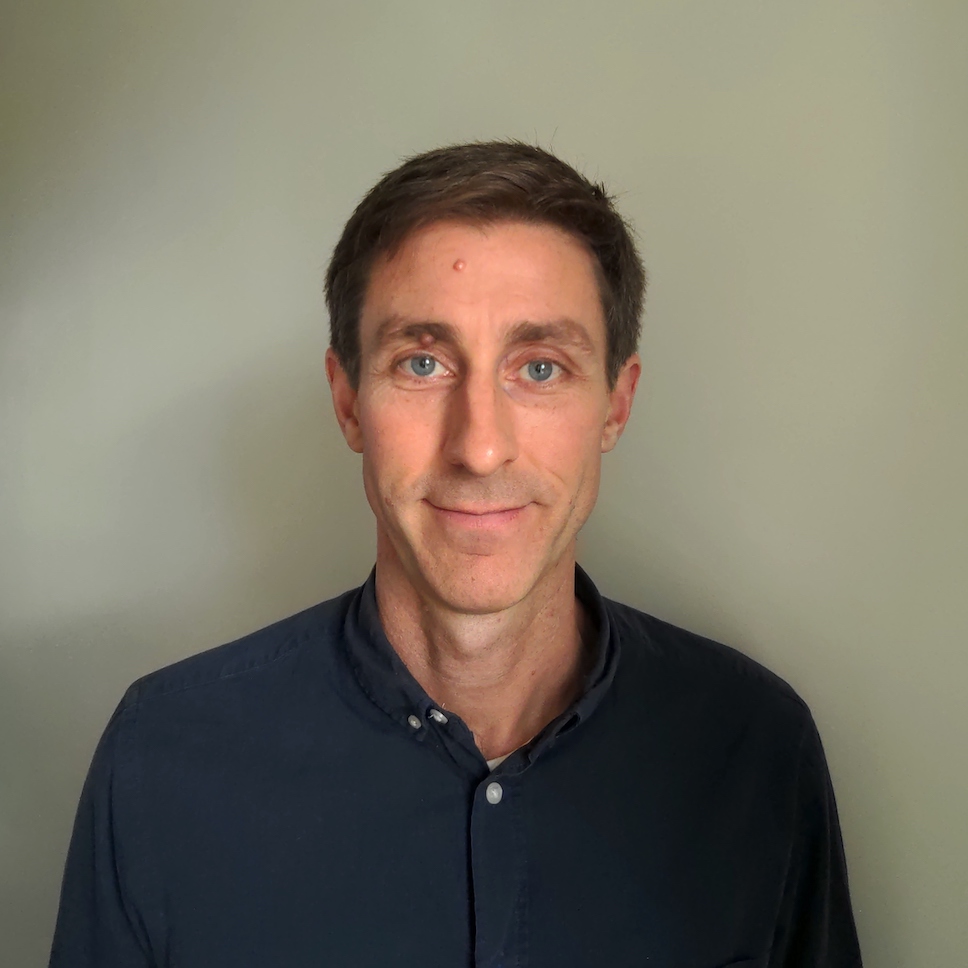 Rapidly decarbonising the global energy system is critical for addressing climate change, but concerns about costs have been a barrier to implementation. Historically, most energy-economy models have overestimated the future costs of renewable energy technologies and underestimated their deployment, thereby overestimating total energy transition costs. These issues have driven calls for alternative approaches and more reliable technology forecasting methods. We use an approach based on probabilistic cost forecasting methods to estimate future energy system costs in a variety of scenarios. Our findings suggest that, compared to continuing with a fossil fuel-based system, a rapid green energy transition will likely result in net savings of many trillions of dollars - even without accounting for climate damages or co-benefits of climate policy.
Rapidly decarbonising the global energy system is critical for addressing climate change, but concerns about costs have been a barrier to implementation. Historically, most energy-economy models have overestimated the future costs of renewable energy technologies and underestimated their deployment, thereby overestimating total energy transition costs. These issues have driven calls for alternative approaches and more reliable technology forecasting methods. We use an approach based on probabilistic cost forecasting methods to estimate future energy system costs in a variety of scenarios. Our findings suggest that, compared to continuing with a fossil fuel-based system, a rapid green energy transition will likely result in net savings of many trillions of dollars - even without accounting for climate damages or co-benefits of climate policy.
-
 While robots have been successfully deployed in factory floors and warehouses, there has been limited progress in having them perform physical tasks with people at home and in the workplace. I aim to bridge the gap between their current performance in human environments and what robots are capable of doing, by making human-robot interactions efficient and robust.
While robots have been successfully deployed in factory floors and warehouses, there has been limited progress in having them perform physical tasks with people at home and in the workplace. I aim to bridge the gap between their current performance in human environments and what robots are capable of doing, by making human-robot interactions efficient and robust.  I will survey a current, heated debate in the AI research community on whether large pre-trained language models can be said to "understand" language -- and the physical and social situations language encodes -- in any important sense. I will describe arguments that have been made for and against such understanding, and, more generally, will discuss what methods can be used to fairly evaluate understanding and intelligence in AI systems. I will conclude with key questions for the broader sciences of intelligence that have arisen in light of these discussions.
I will survey a current, heated debate in the AI research community on whether large pre-trained language models can be said to "understand" language -- and the physical and social situations language encodes -- in any important sense. I will describe arguments that have been made for and against such understanding, and, more generally, will discuss what methods can be used to fairly evaluate understanding and intelligence in AI systems. I will conclude with key questions for the broader sciences of intelligence that have arisen in light of these discussions. Advances in machine learning have led to powerful models for audio and language, proficient in tasks like speech recognition and fluent language generation. Beyond their immense utility in engineering applications, these models offer valuable tools for cognitive science and neuroscience. In this talk, I will demonstrate how these artificial neural network models can be used to understand how the human brain processes language. The first part of the talk will cover how audio neural networks serve as computational accounts for brain activity in the auditory cortex. The second part will focus on the use of large language models, such as those in the GPT family, to non-invasively control brain activity in the human language system.
Advances in machine learning have led to powerful models for audio and language, proficient in tasks like speech recognition and fluent language generation. Beyond their immense utility in engineering applications, these models offer valuable tools for cognitive science and neuroscience. In this talk, I will demonstrate how these artificial neural network models can be used to understand how the human brain processes language. The first part of the talk will cover how audio neural networks serve as computational accounts for brain activity in the auditory cortex. The second part will focus on the use of large language models, such as those in the GPT family, to non-invasively control brain activity in the human language system. Imaging in low light settings is extremely challenging due to low photon counts, both in photography and in microscopy. In photography, imaging under low light, high gain settings often results in highly structured, non-Gaussian sensor noise that’s hard to characterize or denoise. In this talk, we address this by developing a GAN-tuned physics-based noise model to more accurately represent camera noise at the lowest light, and highest gain settings. Using this noise model, we train a video denoiser using synthetic data and demonstrate photorealistic videography at starlight (submillilux levels of illumination) for the first time.
Imaging in low light settings is extremely challenging due to low photon counts, both in photography and in microscopy. In photography, imaging under low light, high gain settings often results in highly structured, non-Gaussian sensor noise that’s hard to characterize or denoise. In this talk, we address this by developing a GAN-tuned physics-based noise model to more accurately represent camera noise at the lowest light, and highest gain settings. Using this noise model, we train a video denoiser using synthetic data and demonstrate photorealistic videography at starlight (submillilux levels of illumination) for the first time.  When designing complex systems, we need to consider multiple trade-offs at various abstraction levels and scales, and choices of single components need to be studied jointly. For instance, the design of future mobility solutions (e.g., autonomous vehicles, micromobility) and the design of the mobility systems they enable are closely coupled. Indeed, knowledge about the intended service of novel mobility solutions would impact their design and deployment process, whilst insights about their technological development could significantly affect transportation management policies. Optimally co-designing sociotechnical systems is a complex task for at least two reasons. On one hand, the co-design of interconnected systems (e.g., large networks of cyber-physical systems) involves the simultaneous choice of components arising from heterogeneous natures (e.g., hardware vs. software parts) and fields, while satisfying systemic constraints and accounting for multiple objectives. On the other hand, components are connected via collaborative and conflicting interactions between different stakeholders (e.g., within an intermodal mobility system). In this talk, I will present a framework to co-design complex systems, leveraging a monotone theory of co-design and tools from game theory. The framework will be instantiated in the task of designing future mobility systems, all the way from the policies that a city can design, to the autonomy of vehicles part of an autonomous mobility-on-demand service. Through various case studies, I will show how the proposed approaches allow one to efficiently answer heterogeneous questions, unifying different modeling techniques and promoting interdisciplinarity, modularity, and compositionality. I will then discuss open challenges for compositional systems design optimization, and present my agenda to tackle them.
When designing complex systems, we need to consider multiple trade-offs at various abstraction levels and scales, and choices of single components need to be studied jointly. For instance, the design of future mobility solutions (e.g., autonomous vehicles, micromobility) and the design of the mobility systems they enable are closely coupled. Indeed, knowledge about the intended service of novel mobility solutions would impact their design and deployment process, whilst insights about their technological development could significantly affect transportation management policies. Optimally co-designing sociotechnical systems is a complex task for at least two reasons. On one hand, the co-design of interconnected systems (e.g., large networks of cyber-physical systems) involves the simultaneous choice of components arising from heterogeneous natures (e.g., hardware vs. software parts) and fields, while satisfying systemic constraints and accounting for multiple objectives. On the other hand, components are connected via collaborative and conflicting interactions between different stakeholders (e.g., within an intermodal mobility system). In this talk, I will present a framework to co-design complex systems, leveraging a monotone theory of co-design and tools from game theory. The framework will be instantiated in the task of designing future mobility systems, all the way from the policies that a city can design, to the autonomy of vehicles part of an autonomous mobility-on-demand service. Through various case studies, I will show how the proposed approaches allow one to efficiently answer heterogeneous questions, unifying different modeling techniques and promoting interdisciplinarity, modularity, and compositionality. I will then discuss open challenges for compositional systems design optimization, and present my agenda to tackle them. This talk reviews the concept of predictive multiplicity in machine learning. Predictive multiplicity arises when different classifiers achieve similar average performance for a specific learning task yet produce conflicting predictions for individual samples. We discuss a metric called “Rashomon Capacity” for quantifying predictive multiplicity in multi-class classification. We also present recent findings on the multiplicity cost of differentially private training methods and group fairness interventions in machine learning.
This talk reviews the concept of predictive multiplicity in machine learning. Predictive multiplicity arises when different classifiers achieve similar average performance for a specific learning task yet produce conflicting predictions for individual samples. We discuss a metric called “Rashomon Capacity” for quantifying predictive multiplicity in multi-class classification. We also present recent findings on the multiplicity cost of differentially private training methods and group fairness interventions in machine learning. Building General Purpose Vision Systems (GPVs) that can perform a huge variety of tasks has been a long-standing goal for the computer vision community. However, end-to-end training of these systems to handle different modalities and tasks has proven to be extremely challenging. In this talk, I will describe a lucrative neuro-symbolic alternative to the common end-to-end learning paradigm called Visual Programming. Visual Programming is a general framework that leverages the code-generation abilities of LLMs, existing neural models, and non-differentiable programs to enable powerful applications. Some of these applications continue to remain elusive for the current generation of end-to-end trained GPVs.
Building General Purpose Vision Systems (GPVs) that can perform a huge variety of tasks has been a long-standing goal for the computer vision community. However, end-to-end training of these systems to handle different modalities and tasks has proven to be extremely challenging. In this talk, I will describe a lucrative neuro-symbolic alternative to the common end-to-end learning paradigm called Visual Programming. Visual Programming is a general framework that leverages the code-generation abilities of LLMs, existing neural models, and non-differentiable programs to enable powerful applications. Some of these applications continue to remain elusive for the current generation of end-to-end trained GPVs. Inverse Optimal Control (IOC) aims to achieve an objective function corresponding to a certain task from an expert robot driven by optimal control, which has become a powerful tool in many applications in robotics. We will present our recent solutions to IOC based on incomplete observations of systems' trajectories, which enables an autonomous system to “sense-and-adapt", i.e., incrementally improving the learning of objective functions as new data arrives. This also leads to a distributed algorithm to solve IOC in multi-agent systems, in which each agent can only access part of the overall trajectory of an optimal control system and cannot solve IOC by itself. This is perhaps the first distributed method to IOC. Applications of IOC into human prediction will also be given.
Inverse Optimal Control (IOC) aims to achieve an objective function corresponding to a certain task from an expert robot driven by optimal control, which has become a powerful tool in many applications in robotics. We will present our recent solutions to IOC based on incomplete observations of systems' trajectories, which enables an autonomous system to “sense-and-adapt", i.e., incrementally improving the learning of objective functions as new data arrives. This also leads to a distributed algorithm to solve IOC in multi-agent systems, in which each agent can only access part of the overall trajectory of an optimal control system and cannot solve IOC by itself. This is perhaps the first distributed method to IOC. Applications of IOC into human prediction will also be given. Recent advances in multimodal models that fuse vision and language are revolutionizing robotics. In this lecture, I will begin by introducing recent multimodal foundational models and their applications in robotics. The second topic of this talk will address our recent work on multimodal language processing in robotics. The shortage of home care workers has become a pressing societal issue, and the use of domestic service robots (DSRs) to assist individuals with disabilities is seen as a possible solution. I will present our work on DSRs that are capable of open-vocabulary mobile manipulation, referring expression comprehension and segmentation models for everyday objects, and future captioning methods for cooking videos and DSRs.
Recent advances in multimodal models that fuse vision and language are revolutionizing robotics. In this lecture, I will begin by introducing recent multimodal foundational models and their applications in robotics. The second topic of this talk will address our recent work on multimodal language processing in robotics. The shortage of home care workers has become a pressing societal issue, and the use of domestic service robots (DSRs) to assist individuals with disabilities is seen as a possible solution. I will present our work on DSRs that are capable of open-vocabulary mobile manipulation, referring expression comprehension and segmentation models for everyday objects, and future captioning methods for cooking videos and DSRs. Contact interactions are pervasive in key real-world robotic tasks like manipulation and walking. However, the non-smooth dynamics associated with impacts and friction remain challenging to model, and motion planning and control algorithms that can fluently and efficiently reason about contact remain elusive. In this talk, I will share recent work from my research group that takes an “optimization-first” approach to these challenges: collision detection, physics, motion planning, and control are all posed as constrained optimization problems. We then build a set of algorithmic and numerical tools that allow us to flexibly compose these optimization sub-problems to solve complex robotics problems involving discontinuous, unplanned, and uncertain contact mechanics.
Contact interactions are pervasive in key real-world robotic tasks like manipulation and walking. However, the non-smooth dynamics associated with impacts and friction remain challenging to model, and motion planning and control algorithms that can fluently and efficiently reason about contact remain elusive. In this talk, I will share recent work from my research group that takes an “optimization-first” approach to these challenges: collision detection, physics, motion planning, and control are all posed as constrained optimization problems. We then build a set of algorithmic and numerical tools that allow us to flexibly compose these optimization sub-problems to solve complex robotics problems involving discontinuous, unplanned, and uncertain contact mechanics. Carbon capture, utilization, and storage (CCUS) is a promising pathway to decarbonize fossil-based power and industrial sectors and is a bridging technology for a sustainable transition to a net-zero emission energy future. This talk aims to provide an overview of design and optimization of CCUS systems. I will also attempt to give a brief perspective on emerging interests in process systems engineering research (e.g., systems integration, multiscale modeling, strategic planning, and optimization under uncertainty). The purpose is not to cover all aspects of PSE research for CCUS but rather to foster discussion by presenting some plausible future directions and ideas.
Carbon capture, utilization, and storage (CCUS) is a promising pathway to decarbonize fossil-based power and industrial sectors and is a bridging technology for a sustainable transition to a net-zero emission energy future. This talk aims to provide an overview of design and optimization of CCUS systems. I will also attempt to give a brief perspective on emerging interests in process systems engineering research (e.g., systems integration, multiscale modeling, strategic planning, and optimization under uncertainty). The purpose is not to cover all aspects of PSE research for CCUS but rather to foster discussion by presenting some plausible future directions and ideas. Quantum technology holds potential for revolutionizing how information is processed, transmitted, and acquired. While quantum computation and quantum communication have been among the well-known examples of quantum technology, it is increasingly recognized that quantum sensing is the application with the most potential for immediate wide-spread practical utilization. In this talk, I will provide an overview of the field of quantum sensing with nitrogen vacancy (NV) centers in diamond as a specific example. I will introduce the physical system of NV and describe some basic quantum sensing protocols. Then, I will present some state-of-the-art and examples where quantum sensors such as NV can accomplish what traditional sensors cannot. Lastly, I will discuss potential future directions in the area of NV quantum sensing.
Quantum technology holds potential for revolutionizing how information is processed, transmitted, and acquired. While quantum computation and quantum communication have been among the well-known examples of quantum technology, it is increasingly recognized that quantum sensing is the application with the most potential for immediate wide-spread practical utilization. In this talk, I will provide an overview of the field of quantum sensing with nitrogen vacancy (NV) centers in diamond as a specific example. I will introduce the physical system of NV and describe some basic quantum sensing protocols. Then, I will present some state-of-the-art and examples where quantum sensors such as NV can accomplish what traditional sensors cannot. Lastly, I will discuss potential future directions in the area of NV quantum sensing. Machine learning can be used to identify animals from their sound. This could be a valuable tool for biodiversity monitoring, and for understanding animal behaviour and communication. But to get there, we need very high accuracy at fine-grained acoustic distinctions across hundreds of categories in diverse conditions. In our group we are studying how to achieve this at continental scale. I will describe aspects of bioacoustic data that challenge even the latest deep learning workflows, and our work to address this. Methods covered include adaptive feature representations, deep embeddings and few-shot learning.
Machine learning can be used to identify animals from their sound. This could be a valuable tool for biodiversity monitoring, and for understanding animal behaviour and communication. But to get there, we need very high accuracy at fine-grained acoustic distinctions across hundreds of categories in diverse conditions. In our group we are studying how to achieve this at continental scale. I will describe aspects of bioacoustic data that challenge even the latest deep learning workflows, and our work to address this. Methods covered include adaptive feature representations, deep embeddings and few-shot learning. The talk will be divided into two parts. The first part of the talk introduces a class of first-order methods for constrained optimization that are based on an analogy to non-smooth dynamical systems. The key underlying idea is to express constraints in terms of velocities instead of positions, which has the algorithmic consequence that optimizations over feasible sets at each iteration are replaced with optimizations over local, sparse convex approximations. This results is a simplified suite of algorithms and an expanded range of possible applications in machine learning. In the second part of my talk, I will present a robot learning algorithm for trajectory tracking. The method incorporates prior knowledge about the system dynamics and by optimizing over feedforward actions, the risk of instability during deployment is mitigated. The algorithm will be evaluated on a ping-pong playing robot that is actuated by soft pneumatic muscles.
The talk will be divided into two parts. The first part of the talk introduces a class of first-order methods for constrained optimization that are based on an analogy to non-smooth dynamical systems. The key underlying idea is to express constraints in terms of velocities instead of positions, which has the algorithmic consequence that optimizations over feasible sets at each iteration are replaced with optimizations over local, sparse convex approximations. This results is a simplified suite of algorithms and an expanded range of possible applications in machine learning. In the second part of my talk, I will present a robot learning algorithm for trajectory tracking. The method incorporates prior knowledge about the system dynamics and by optimizing over feedforward actions, the risk of instability during deployment is mitigated. The algorithm will be evaluated on a ping-pong playing robot that is actuated by soft pneumatic muscles. The decarbonization of buildings presents new challenges for the reliability of the electrical grid because of the intermittency of renewable energy sources and increase in grid load brought about by end-use electrification. To restore reliability, grid-interactive efficient buildings can provide flexibility services to the grid through demand response. Residential demand response programs are hindered by the need for manual intervention by customers. To maximize the energy flexibility potential of residential buildings, an advanced control architecture is needed. Reinforcement learning is well-suited for the control of flexible resources as it can adapt to unique building characteristics compared to expert systems. Yet, factors hindering the adoption of RL in real-world applications include its large data requirements for training, control security and generalizability. This talk will cover some of our recent work addressing these challenges. We proposed the MERLIN framework and developed a digital twin of a real-world 17-building grid-interactive residential community in CityLearn. We show that 1) independent RL-controllers for batteries improve building and district level KPIs compared to a reference RBC by tailoring their policies to individual buildings, 2) despite unique occupant behaviors, transferring the RL policy of any one of the buildings to other buildings provides comparable performance while reducing the cost of training, 3) training RL-controllers on limited temporal data that does not capture full seasonality in occupant behavior has little effect on performance. Although, the zero-net-energy (ZNE) condition of the buildings could be maintained or worsened because of controlled batteries, KPIs that are typically improved by ZNE condition (electricity price and carbon emissions) are further improved when the batteries are managed by an advanced controller.
The decarbonization of buildings presents new challenges for the reliability of the electrical grid because of the intermittency of renewable energy sources and increase in grid load brought about by end-use electrification. To restore reliability, grid-interactive efficient buildings can provide flexibility services to the grid through demand response. Residential demand response programs are hindered by the need for manual intervention by customers. To maximize the energy flexibility potential of residential buildings, an advanced control architecture is needed. Reinforcement learning is well-suited for the control of flexible resources as it can adapt to unique building characteristics compared to expert systems. Yet, factors hindering the adoption of RL in real-world applications include its large data requirements for training, control security and generalizability. This talk will cover some of our recent work addressing these challenges. We proposed the MERLIN framework and developed a digital twin of a real-world 17-building grid-interactive residential community in CityLearn. We show that 1) independent RL-controllers for batteries improve building and district level KPIs compared to a reference RBC by tailoring their policies to individual buildings, 2) despite unique occupant behaviors, transferring the RL policy of any one of the buildings to other buildings provides comparable performance while reducing the cost of training, 3) training RL-controllers on limited temporal data that does not capture full seasonality in occupant behavior has little effect on performance. Although, the zero-net-energy (ZNE) condition of the buildings could be maintained or worsened because of controlled batteries, KPIs that are typically improved by ZNE condition (electricity price and carbon emissions) are further improved when the batteries are managed by an advanced controller. In this talk, I will discuss our recent research on understanding post-hoc interpretability. I will begin by introducing a characterization of post-hoc interpretability methods as local function approximators, and the implications of this viewpoint, including a no-free-lunch theorem for explanations. Next, we shall challenge the assumption that post-hoc explanations provide information about a model's discriminative capabilities p(y|x) and instead demonstrate that many common methods instead rely on a conditional generative model p(x|y). This observation underscores the importance of being cautious when using such methods in practice. Finally, I will propose to resolve this via regularization of model structure, specifically by training low curvature neural networks, resulting in improved model robustness and stable gradients.
In this talk, I will discuss our recent research on understanding post-hoc interpretability. I will begin by introducing a characterization of post-hoc interpretability methods as local function approximators, and the implications of this viewpoint, including a no-free-lunch theorem for explanations. Next, we shall challenge the assumption that post-hoc explanations provide information about a model's discriminative capabilities p(y|x) and instead demonstrate that many common methods instead rely on a conditional generative model p(x|y). This observation underscores the importance of being cautious when using such methods in practice. Finally, I will propose to resolve this via regularization of model structure, specifically by training low curvature neural networks, resulting in improved model robustness and stable gradients. High-dimensional spatio-temporal dynamics can often be encoded in a low-dimensional subspace. Engineering applications for modeling, characterization, design, and control of such large-scale systems often rely on dimensionality reduction to make solutions computationally tractable in real-time. Common existing paradigms for dimensionality reduction include linear methods, such as the singular value decomposition (SVD), and nonlinear methods, such as variants of convolutional autoencoders (CAE). However, these encoding techniques lack the ability to efficiently represent the complexity associated with spatio-temporal data, which often requires variable geometry, non-uniform grid resolution, adaptive meshing, and/or parametric dependencies. To resolve these practical engineering challenges, we propose a general framework called Neural Implicit Flow (NIF) that enables a mesh-agnostic, low-rank representation of large-scale, parametric, spatial-temporal data. NIF consists of two modified multilayer perceptrons (MLPs): (i) ShapeNet, which isolates and represents the spatial complexity, and (ii) ParameterNet, which accounts for any other input complexity, including parametric dependencies, time, and sensor measurements. We demonstrate the utility of NIF for parametric surrogate modeling, enabling the interpretable representation and compression of complex spatio-temporal dynamics, efficient many-spatial-query tasks, and improved generalization performance for sparse reconstruction.
High-dimensional spatio-temporal dynamics can often be encoded in a low-dimensional subspace. Engineering applications for modeling, characterization, design, and control of such large-scale systems often rely on dimensionality reduction to make solutions computationally tractable in real-time. Common existing paradigms for dimensionality reduction include linear methods, such as the singular value decomposition (SVD), and nonlinear methods, such as variants of convolutional autoencoders (CAE). However, these encoding techniques lack the ability to efficiently represent the complexity associated with spatio-temporal data, which often requires variable geometry, non-uniform grid resolution, adaptive meshing, and/or parametric dependencies. To resolve these practical engineering challenges, we propose a general framework called Neural Implicit Flow (NIF) that enables a mesh-agnostic, low-rank representation of large-scale, parametric, spatial-temporal data. NIF consists of two modified multilayer perceptrons (MLPs): (i) ShapeNet, which isolates and represents the spatial complexity, and (ii) ParameterNet, which accounts for any other input complexity, including parametric dependencies, time, and sensor measurements. We demonstrate the utility of NIF for parametric surrogate modeling, enabling the interpretable representation and compression of complex spatio-temporal dynamics, efficient many-spatial-query tasks, and improved generalization performance for sparse reconstruction. Rapidly decarbonising the global energy system is critical for addressing climate change, but concerns about costs have been a barrier to implementation. Historically, most energy-economy models have overestimated the future costs of renewable energy technologies and underestimated their deployment, thereby overestimating total energy transition costs. These issues have driven calls for alternative approaches and more reliable technology forecasting methods. We use an approach based on probabilistic cost forecasting methods to estimate future energy system costs in a variety of scenarios. Our findings suggest that, compared to continuing with a fossil fuel-based system, a rapid green energy transition will likely result in net savings of many trillions of dollars - even without accounting for climate damages or co-benefits of climate policy.
Rapidly decarbonising the global energy system is critical for addressing climate change, but concerns about costs have been a barrier to implementation. Historically, most energy-economy models have overestimated the future costs of renewable energy technologies and underestimated their deployment, thereby overestimating total energy transition costs. These issues have driven calls for alternative approaches and more reliable technology forecasting methods. We use an approach based on probabilistic cost forecasting methods to estimate future energy system costs in a variety of scenarios. Our findings suggest that, compared to continuing with a fossil fuel-based system, a rapid green energy transition will likely result in net savings of many trillions of dollars - even without accounting for climate damages or co-benefits of climate policy.